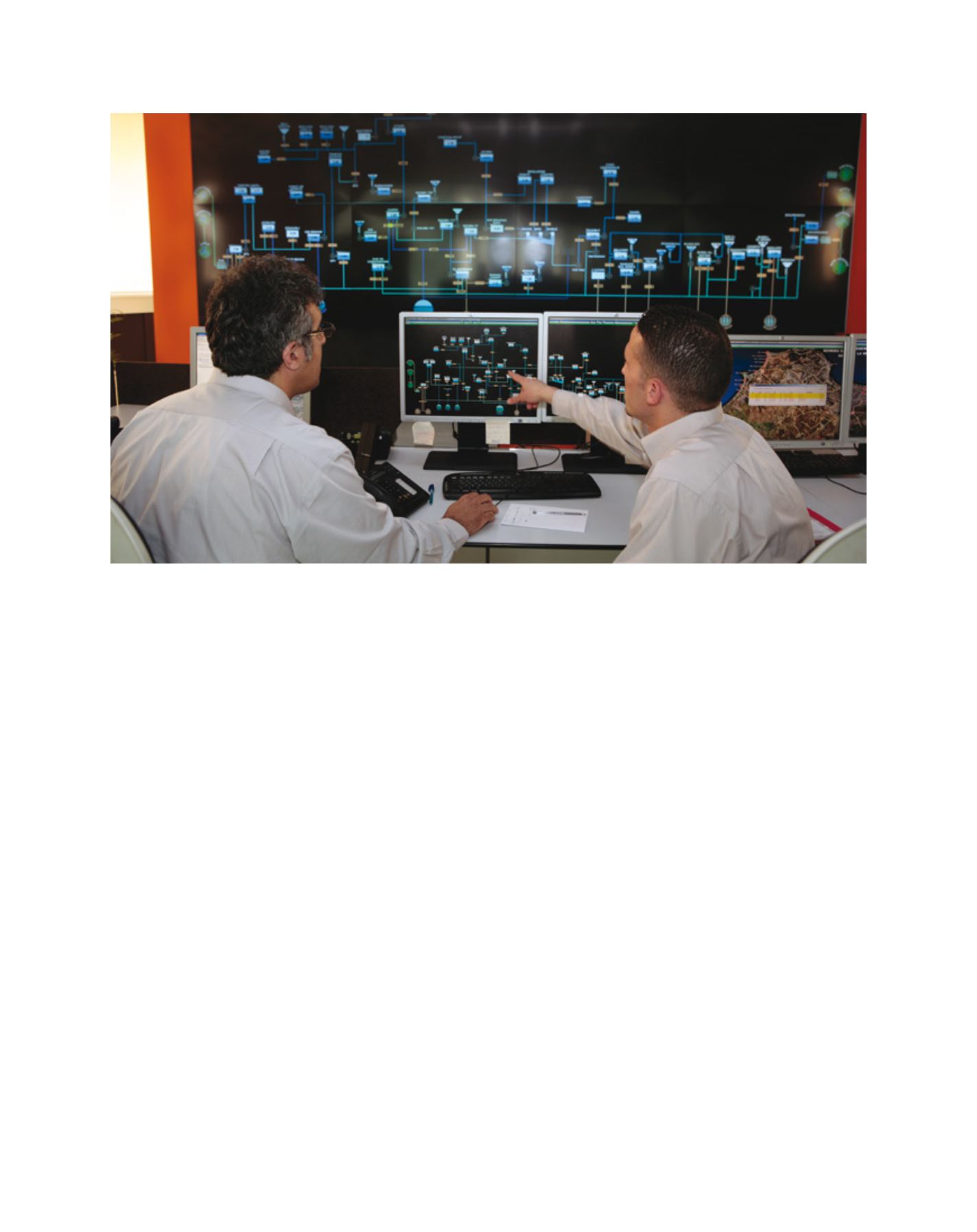

[
] 236
W
ater
C
ooperation
, S
ustainability
and
P
overty
E
radication
have been made to Algiers’ water and wastewater services according
to international standards.
Since 2010, thanks to the joint efforts of the state, which
invested in new infrastructures (conventional and non-conven-
tional water resources, wastewater treatment plants, new piping
and main sewers), Suez Environnement and SEAAL, which
improved service management and the efficiency of pre-exist-
ing infrastructures, 100 per cent of the water that is distributed
is drinkable and available 24 hours a day, seven days a week,
compared to just 8 per cent of water in 2006. 143,000 leaks were
repaired, 231 km of pipes were replaced and 330,000 metres were
installed. All leaks are now repaired within two days compared to
an average of 4.2 days in 2006. Water quality has also been dealt
with. Since 2008, water bacteria levels have not exceeded indus-
try guidelines. The number of customers in Algiers increased
from 422,000 in 2006 to 558,000 in 2012. Around 250,000
telephone calls per year are processed in SEAAL’s Call Center,
which is open 24/7. 85 per cent of customers are satisfied with
the service.
In addition to supplying all inhabitants with drinking water,
the public-private partnership has also focused on improving
wastewater treatment. Today, 53 per cent of the wastewater of the
Wilaya of Algiers is now treated as opposed to just six per cent in
2006. Since the project started, 3,574 km of wastewater sewers
have been cleared and 225 km have been renovated. In addition,
67 of Algiers’ 72 beaches are now approved for bathing, compared
to 39 in 2006.
The project is also proving to be financially successful: SEAAL
has kept to its business plan and is already making substantial
cost savings.
The Algerian authorities’ confidence in Suez
Environnement was proven in 2011 when they extended
their agreement with the company for a further five years
until 2016. This new contract involves making further
improvements to the water and wastewater treatment
services available to the 600,000 inhabitants of the Wilaya
of Tipaza, located west of Algiers. In addition to replicating
the results already achieved in Algiers, the contract also
sets out to ensure the sustainable autonomy of SEAAL.
Cooperation is a key success factor
The close collaboration between Algiers authorities and
Suez Environnement was fundamental to the success
of this project. It highlights the importance of setting
objectives, creating action plans and making decisions
in a collaborative manner. Suez Environnement’s ability
to formulate an overall strategy to improve service
levels, as well as strengthen the local infrastructure to
ensure sustainable progress, was also key.
Suez Environnement is committed to helping its
customers achieve their objectives and find the ideal
solution tailored to their specific concerns. The
company’s vision is to bring new solutions to market
to help customers deal with increasingly complex
environmental problems. Working with others, Suez
Environnement aims to stimulate creativity and
encourage the emergence of new ideas. The result:
innovative water management solutions that provide
significant economic and environmental benefits, and
sustainable results.
Suez Environnement works closely with SEAAL workers to improve their skills
Image: Suez Environnement, Krista Boggs


















